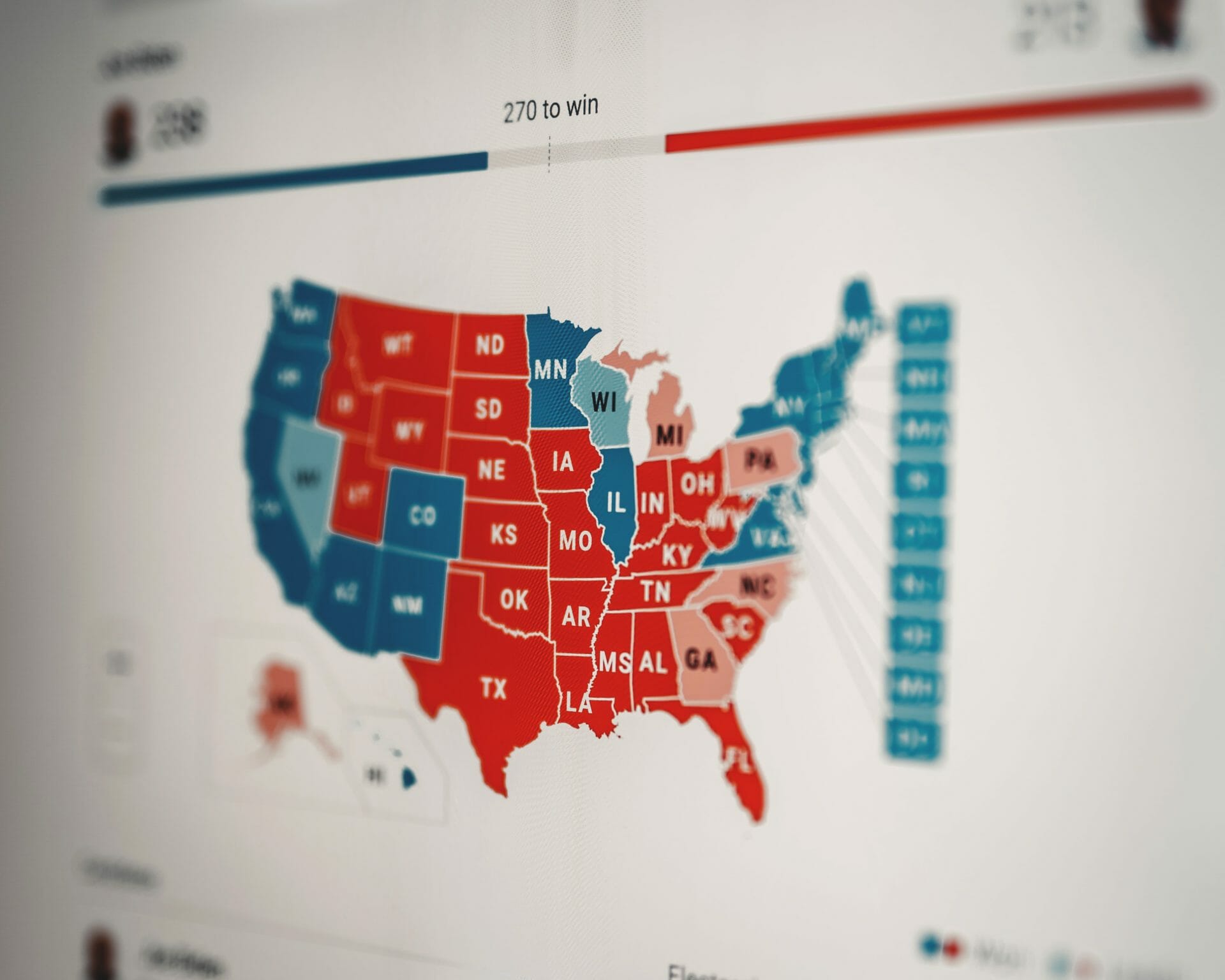
Photo by Clay Banks on Unsplash
Dividers Anonymous

Tim Shriver
October 19, 2021
Another week comes and another flood of divisive stories surrounds us. This week, conservatives and liberals are waging war on issues like abortion rights and the federal budget—to name just two. A few weeks ago, liberals and conservatives were attacking each other on Afghanistan and the politicization of the Supreme Court. Weeks before that, it was voting rights and border issues. And every week, we find ourselves ready to kill each other over masks—whether or not to wear a small piece of fabric over our noses and mouths to try to stem the spread of a deadly disease.
If we weren’t living through this, I don’t think we would believe it. War, hate, name calling, demonizing. No matter the issue, it’s our default method for solving problems. Somehow the vast majority of us have concluded that the best way to solve a problem—almost any problem—is to demean, destabilize, and destroy those who don’t see it our way. In the background, the toll of contempt for and indifference to each other is grinding us down. Almost 80% of American parents are concerned about their child’s mental health, crime rates continue to rise, and 41% of Biden voters and 52% of Trump voters now at least “somewhat agree” that it’s time to split the country. How is it that we’re so blinded to the effects of our culture of contempt on the mental health, community stability, and overall survival of our nation that we continually make them worse?
Professor Peter T. Coleman from Columbia University recently shared with me his view that we’re not just in a crisis of common meaning, but we’ve actually become addicted to the sensation that comes from the combination of anger, contempt, hatred, virtue, and self-righteousness we feel when we tell ourselves “THOSE PEOPLE” are the problem. If you’ve been in, or know people who suffer from, addiction, this may sound strange. But it makes perfect sense to me. Addictions come in many forms: we can be addicted to alcohol, drugs, and food, but we can also be addicted to anything from religion to hero worship to shame to weight-lifting. The common ground is always the same: we substitute some soothing sensation for honesty, healing, and love.
Maybe you shouldn’t be surprised. The spiritual master Richard Rohr suggests we’re all addicted to something. So right now, we’re all addicted to contempt—to the feeling that the problems are the fault of the people we have contempt for. Don’t believe me? Wait until you see an article that is just a hit piece on someone you hate and try not to take the bait. Try instead to read an article that is critical of someone you admire. Find that hard? That’s the addiction!
Like other addictions, we tend to deny that we’re addicted. And like other addictions, we’ve come to depend on division to manage our lives. It has become our default mode for reducing stress and pain: when we feel overwhelmed or scared or just desperately in need of comfort, we go to our substance of choice to make us feel better. Right now, our cultural “substance” of choice is contempt. We ease our pain and frustration by shaming, blaming, and hating others.
Alas, as anyone who has honestly faced addiction knows, the substance doesn’t work. It doesn’t heal the pain. And as anyone who has honestly faced addiction also knows, you can’t break it alone.
The future doesn’t depend on whether progressives or conservatives win. It depends on whether uniters or dividers win. I want to be a uniter. I’m ready to form the first chapter of Dividers Anonymous. I’m ready to change. Anyone want to join me?
In “The Call To Unite,” Pastor Chad Veach wrote, “What gets revealed must get healed. And sometimes, it takes a crisis to reveal it. Sometimes it takes us getting pressed, our backs pushed up against the wall, for us to find out what’s inside. It’s rare that we’re on the mountain-top of success and we cry out for help. It’s usually when we’re in the valley of despair. This crisis has brought us to that place of need… We’re depending on others to say to us, Their problem is my problem.”
That’s us—in the place of need. And there’s an obvious implication: we need a national recovery program! It won’t work to argue against divisiveness, bemoan it, rail against it, and gossip about “those people.” We can’t talk each other out of addiction. We have to face it, and in some ways, be humiliated by it. In the case of our country, we need to realize we’re bottoming out—that the life of our nation is out of control and we’re each and all powerless to stop it alone. In the language of AA, it’s time for Step 1: “We admitted we were powerless over alcohol and that our lives had become unmanageable.” We just replace the word alcohol with the word contempt, and we have an accurate statement.
For the last year, many of us have imagined creating “unite” groups in our local communities where we could meet to learn from each other, strengthen each other, and practice the skills of uniters. So, here’s a thought: how about we start a new version of an addiction recovery program called “Dividers Anonymous?” We could start our meetings with the humility and honesty of other 12-step program participants. For example, at the beginning of the meeting, I would say, “Hi, I’m Tim. And I’m a divider.” And all my fellow addicts would respond, “Hi Tim.”
Try it. It may feel uncomfortable. It did for me the first time I said it, even in jest. My first reaction was, “Wait a minute, I’m not a divider! That’s other people!” And before I could even finish the thought, I realized I’m an addict too. As much as I hate to admit it, I’m just like everyone else: far too often, when I feel pain or anxiety or shame, I quickly identify someone or some group that is the cause of it. I need help. And I need to go to recovery meetings where I can find others like me who can give me the solidarity and strength to help me heal and become a uniter.
That’s all of us right now. The future doesn’t depend on whether progressives or conservatives win. It depends on whether uniters or dividers win. I want to be a uniter. I’m ready to form the first chapter of Dividers Anonymous. I’m ready to change.
Anyone want to join me?
Timothy Shriver is chairman of Special Olympics International and co-founder of UNITE – an initiative to promote national unity and solidarity across differences. First published by UNITE. Reprinted with permission. For further commentary and news from UNITE partners, sign up for UNITE’s newsletter—Tuesday’s with Tim.
The views expressed are those of the author and not necessarily those of American Baptist Home Mission Societies.


